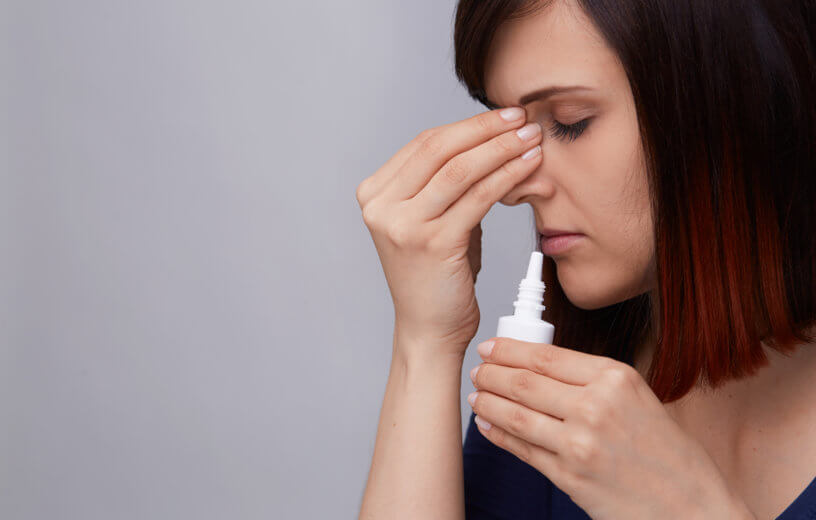CINCINNATI — Stuffy sinuses making you miserable? Before scheduling a doctor’s appointment, you might want to be more diligent with over-the-counter (OTC) nasal sprays. According to a recent study, regular, consistent use of saline or corticosteroid nasal sprays can help reduce antibiotic and oral steroid use for symptom flareups.
The medical term for congested sinuses is chronic rhinosinusitis (CRS). CRS is to the sinuses what asthma is to the lungs. Those who suffer from the condition experience half or more of the following symptoms: nasal obstruction, nasal drainage, facial pain/pressure and decreased sense of smell — for at least 12 weeks. Though not fatal like asthma, CRS produces a lot of misery along with the mucus.
A team of researchers led by the University of Cincinnati College of Medicine studied 150 patients who were being managed for chronic rhinosinusitis at Massachusetts Eye and Ear. The results of the study showed that OTC saline or corticosteroid sprays help with symptoms by thinning out mucus and relieving sinus swelling, thus reducing substantially the need for prescription drugs.
Researchers say this is very good news for those who have CRS, many of whom use antibiotics and oral steroids to help manage their sinus problems.
In this study, roughly a quarter of participants were using antibiotics and another quarter needed oral steroids. But side effects from antibiotics can include digestive problems and eventual resistance to the drugs. Oral steroids can cause mood and sleep problems, weight gain, diabetes, cataracts and other health problems.
When they began their study, researchers expected that the participants with the most severe CRS symptoms would need the most antibiotics or oral steroids. They were surprised to find instead that participants who regularly used nasal sprays were able to manage their CRS with 40% fewer antibiotics and 67% fewer corticosteroids.
“Medication usage was reduced by one course every three to four months,” says Dr. Ahmad Sedaghat, an ear, nose and throat specialist at the university and a UC Health physician, in a statement. “The medical therapy we provided in the form of intranasal saline and intranasal steroids dramatically cut down on the usage of systemic antibiotics and steroids.”
Sedaghat wants other physicians to be aware that the key to dramatically fewer CRS complications is to follow up with patients to make sure they are using their sprays every single day.
“The hope is with the consistent use of these nasal irrigations and corticosteroid sprays, we can keep symptoms at an acceptable level and so symptoms don’t affect patients’ quality of life,” concludes Sedaghat.
Study results are published in the scholarly journal Laryngoscope.
